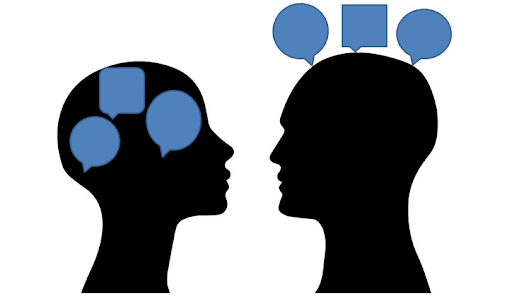Over the years, the social norms and expectations have changed, yet they continue to favor extroverts. Social norms are the unwritten rules of society that decide what is considered “normal” behavior for social events and interaction. Introverts and extroverts handle and experience social situations differently. For example, an extrovert would benefit from social interaction, while an introvert would feel drained from too much social interaction. Extroverts enjoy talking to people and being in highly stimulating environments, but introverts prefer to be alone and do not do well in highly stimulating environments.
In society, we are taught that being talkative and social essentially means that people like you, and that being less talkative and un-social makes you less likable, but that’s just not true. Early in life as children, we are encouraged to be outgoing and forced to participate in group activities whether we want to or not.
Quite often, children who are quieter are told to be more social and are forced to insert themselves into groups. As we get older, this turns into constant pressure of feeling like they have to act extroverted and do the same things extroverts do.
In school, introverts are forced into extroverted positions, where they have to sit in a crowded classroom under harsh lighting and are forced to do things that would be beneficial for extroverts, such as group projects and presentations. Instead, they would benefit from a less stimulating learning environment, with fewer people, and fewer expectations to act extroverted.
Introverts often get told to speak up or asked why they don’t talk, but you never hear people tell extroverts to stop talking or get asked why they talk so much. This is because the social standard has been shaped around extroverted behavior, so extroverts don’t feel the same pressure as introverts do to pretend to be something they are not.
The bias towards extroverts over introverts doesn’t extend to just social norms but is also present in work regulations. For example, during an interview, even if a candidate has a better resume and is better suited for the job but has introverted traits or doesn’t show outright extrovertism, the candidate with extroverted traits is more likely to get the job, even if less suited for it. This is because when looking for employees, companies want people with good communication skills, confidence, and the ability to easily carry out a conversation, which are often extroverted traits.
Additionally, an extrovert person is more likely to get a raise or promotion, but not because they are more skilled at their job. Extroverts are more often recognised for their work because they are good at self-promotion and their “visibility”, and since introverted employees are quieter, they are often overlooked, even if doing more work. Additionally, extroverts are more often chosen for leadership positions due to their ability to communicate and their assertive traits that allow them to easily take control of a situation. Therefore, they are given more opportunities to get recognized for their work.
Extrovertism has taken over so many aspects of daily life, to the point where introverts are expected to be extroverts.

